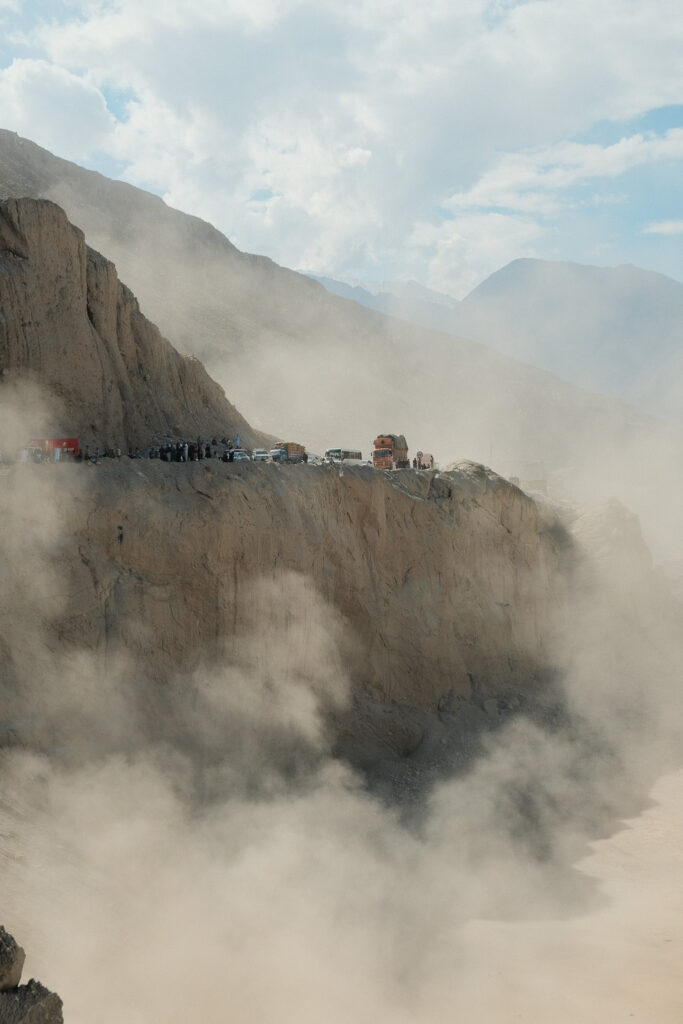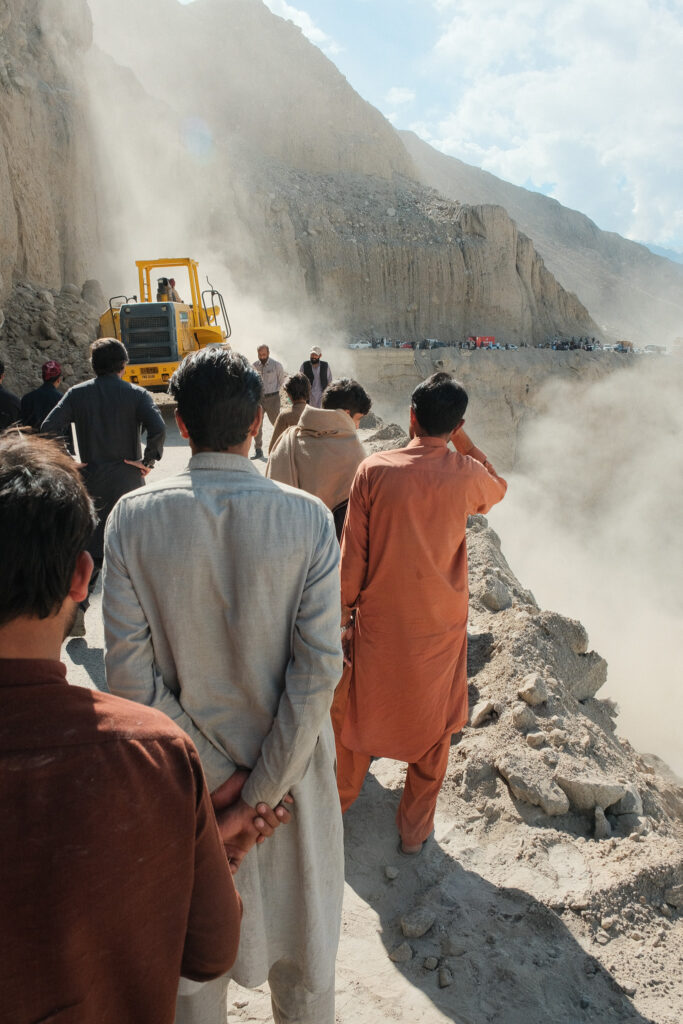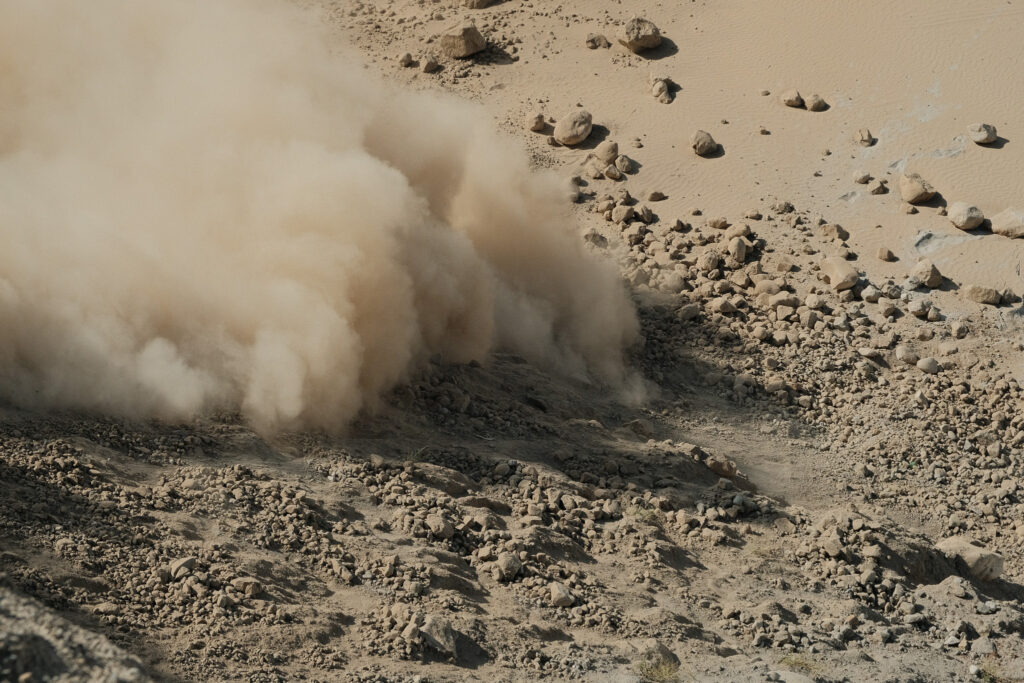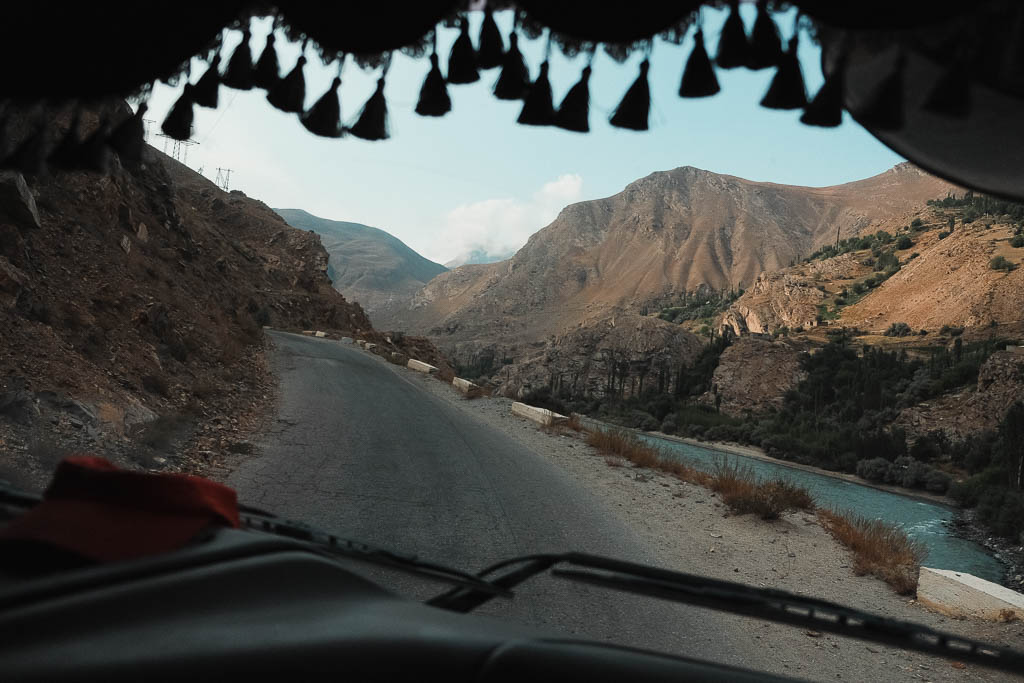
Travel Stories
Between 2022 and 2024 I made my way over land to India, visiting most country in between. From Azerbaijan to Afghanistan and from the dried up sea in Karakalpakstan to the cold desert in Baltistan. This page will be updated with new photos and stories on a regular basis.
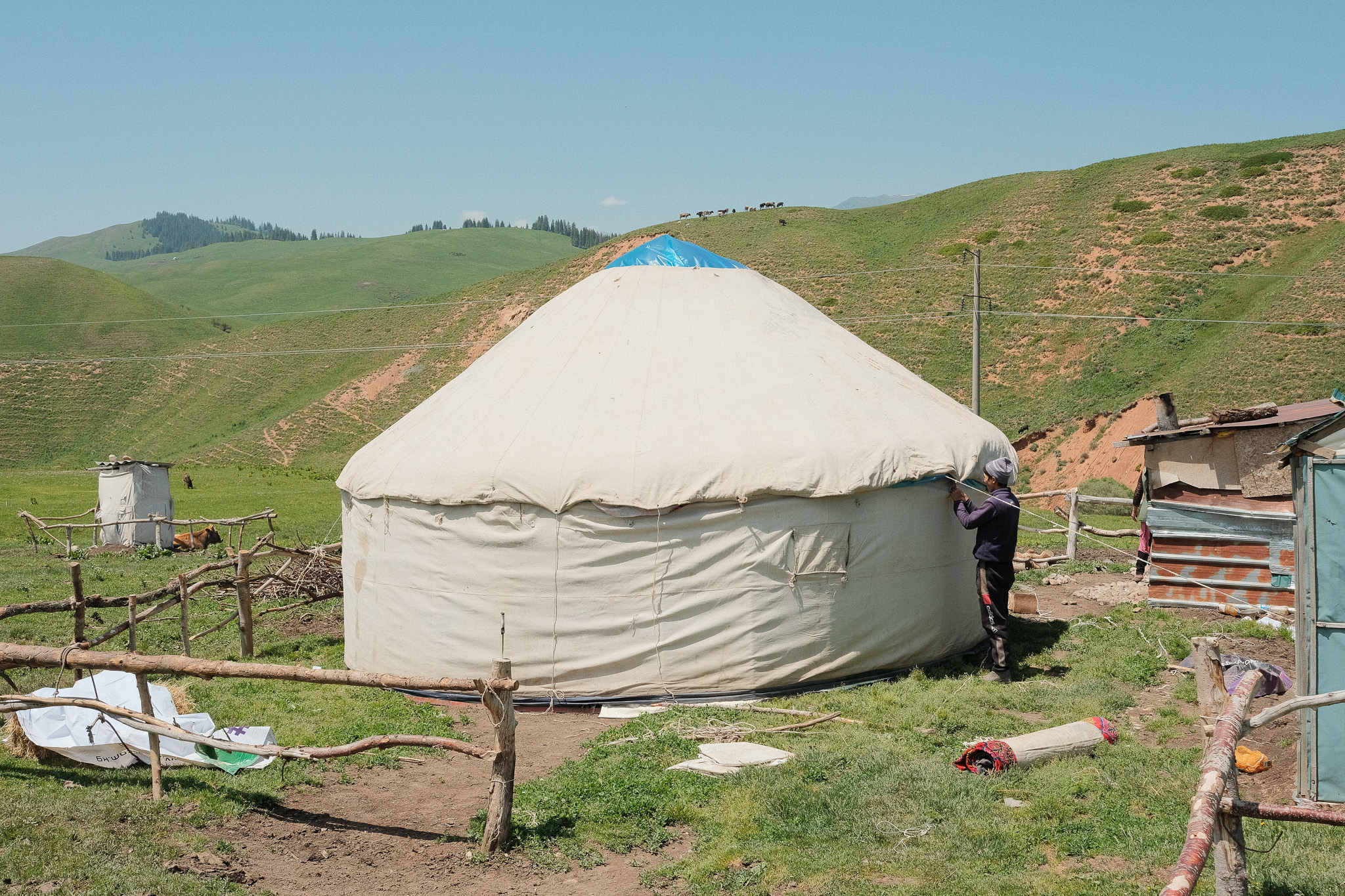
Arstanbek and his family
On a bright morning I set out to hitchhike from Kyrgyzstan to Kazakhstan. Little did I know, the road ahead would be far more challenging than any map could predict. My aimed ‘highway’ appeared to be a desolated dirt road with at leat 12km to the next crossroad. I’m still not sure if I was deceived by my map or my own delusion, but turning around (and therefore failing) wasn’t part of my plan. After two hours and a steep climb, I found myself on higher pastures.
As I passed a small house, I saw three people struggling to set up a yurt. I gestured to offer help, and they quickly accepted. Within moments, I was holding two ropes, helping pull the covering over the frame while the family scrambled around to make it fit. It took the four of us another good ten minutes to get the yurt fully covered and tied.
As I was about to wave goodbye, they insisted I stay for lunch as a thank you for my help. I stepped into their self-built, two-room home, which appeared to be mostly made of particleboard and foam. I initially assumed it was just a seasonal outpost, but I soon realised that this might be all the family had. The first room was a storage space with a sink. The second room served as their living, dining, and sleeping area, furnished with a wood stove and an abundance of blankets, and Kyrgyz futons. A young child slept soundly on one of the futons in the corner.
As I was about to wave goodbye, they insisted I stay for lunch as a thank you for my help. I stepped into their self-built, two-room home, which appeared to be mostly made of particleboard and foam. I initially assumed it was just a seasonal outpost, but I soon realised that this might be all the family had. The first room was a storage space with a sink. The second room served as their living, dining, and sleeping area, furnished with a wood stove and an abundance of blankets, and Kyrgyz futons. A young child slept soundly on one of the futons in the corner.
Despite their limited supplies, they urged me to try everything—bread with homemade jam, fresh yogurt, and more. Even without a language barrier, I’m not sure I would have understood everything they fed me. One of the few things they didn’t produce themselves was the sugar that was scooped extensively in every cup of tea by the father.
Through broken words I learned that the 17-year-old boy, Arstanbek, was not only their son but also the father of the baby sleeping in the corner. His young wife was working in a nearby village, leaving Arstanbek and his parents to care for the child.
That afternoon I stepped into an unknown world for a moment. A world of hard work, resilience and nomadic hospitality. Though the encounter was short, it left an impression I wouldn’t forget anytime soon.
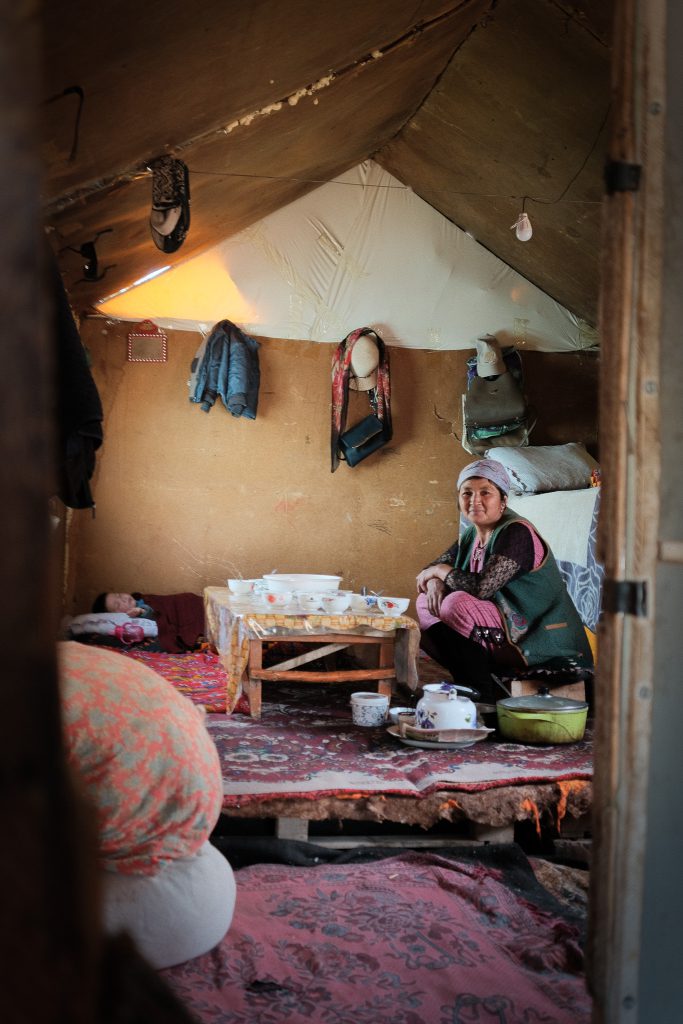
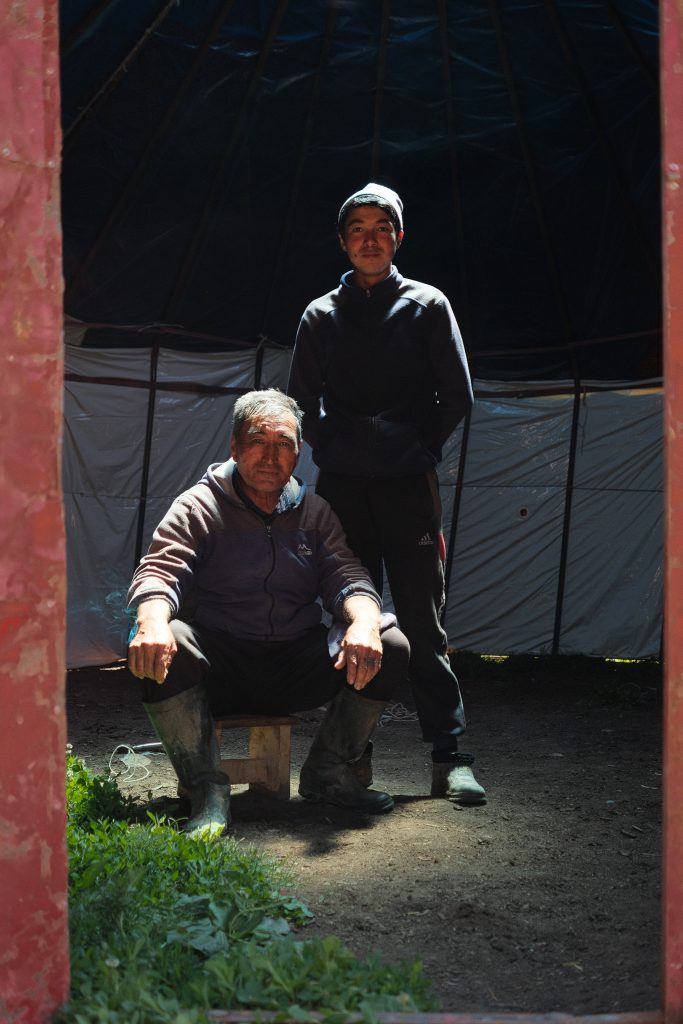
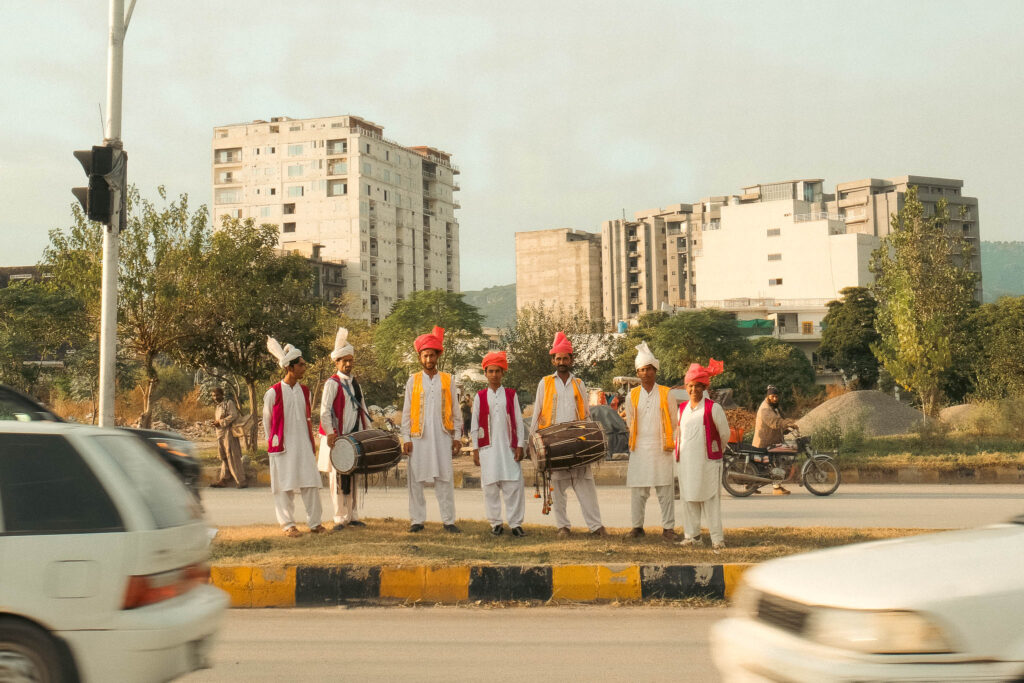
An intersection of lives in Islamabad
I got to know Islamabad better than I ever intended to. I had to wait for paperwork, which gave me over 2 weeks to explore the in 1967 newly built capital of Pakistan. Every day I rode out on my motorbike to discover a new part of the city, and every single day I passed the same group of dressed up gentlemen in the middle of an intersection. I’m still not sure why it took me over 2 weeks, but eventually I stopped by with a translating friend to make a conversation.
The group turned out to be Shakir (middle) and his band. Growing up in a family of musicians, Shakir has the rhythm of the Dhol drums running through his veins. With his 6 fellow band members he plays at any party that comes on offer. But as much as Pakistanis love their folk music, so tough is earning your penny by waiting on an intersection.
Shakir and his band seem to rely fully on the happiness of their surroundings. Whenever someone has a celebration, they drive by and pick up the band, who then plays at their party. When the performance is over and the payment is made, the whole band is dropped off again at their intersection. It may sound wonderful at first, but every day their income is a question. Every day is a hope for a new celebration.
Shakir and I still video call once in a while. Although we don’t share a common language, we’re always happy to have a small peak into each others lives. Shakir always asks when I come back to Pakistan. I hope soon, Shakir. Inshallah.
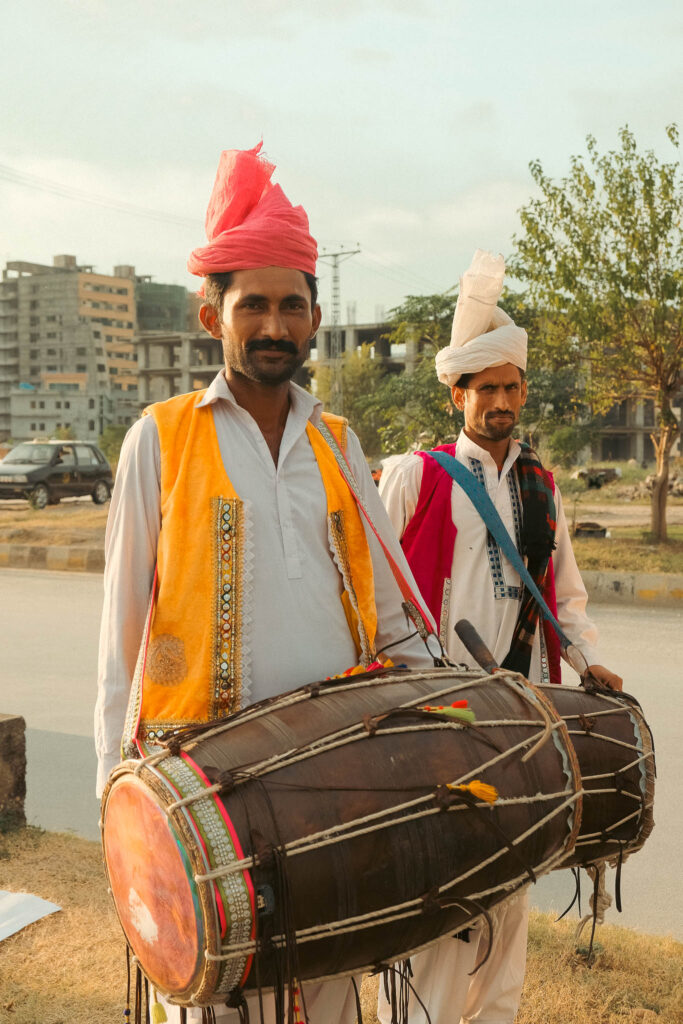
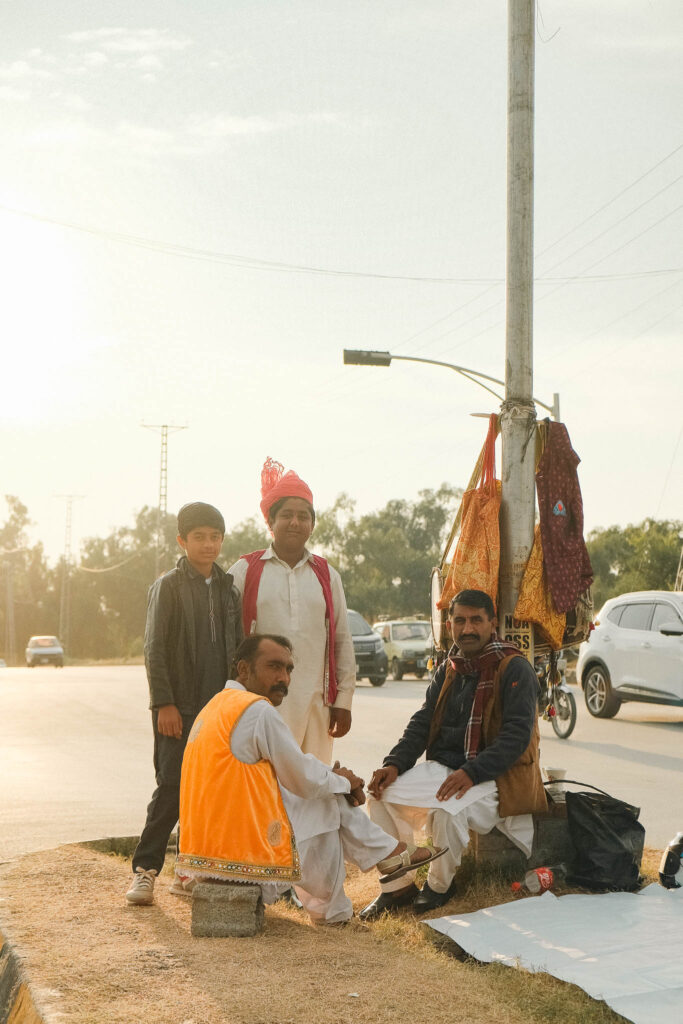
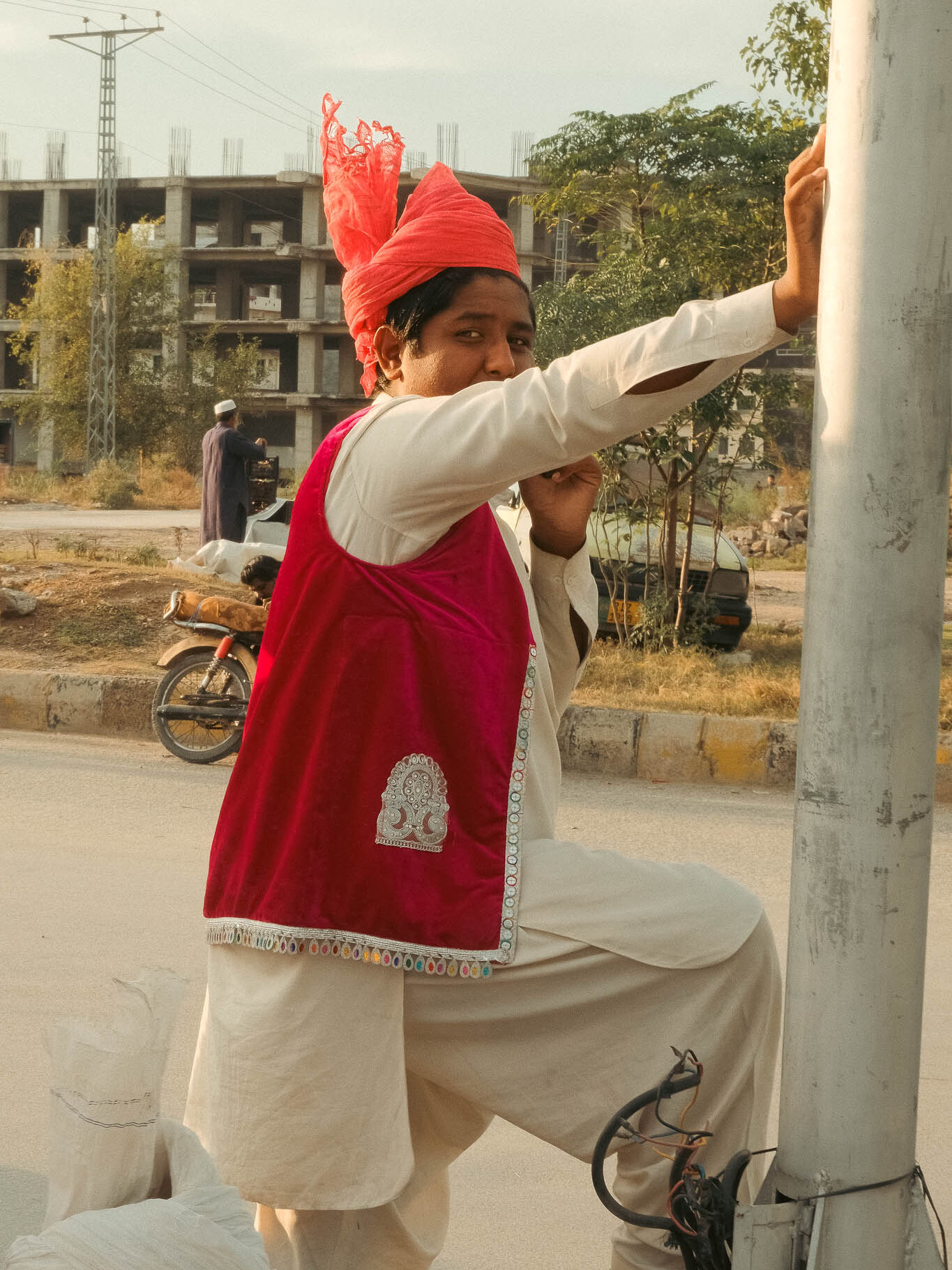
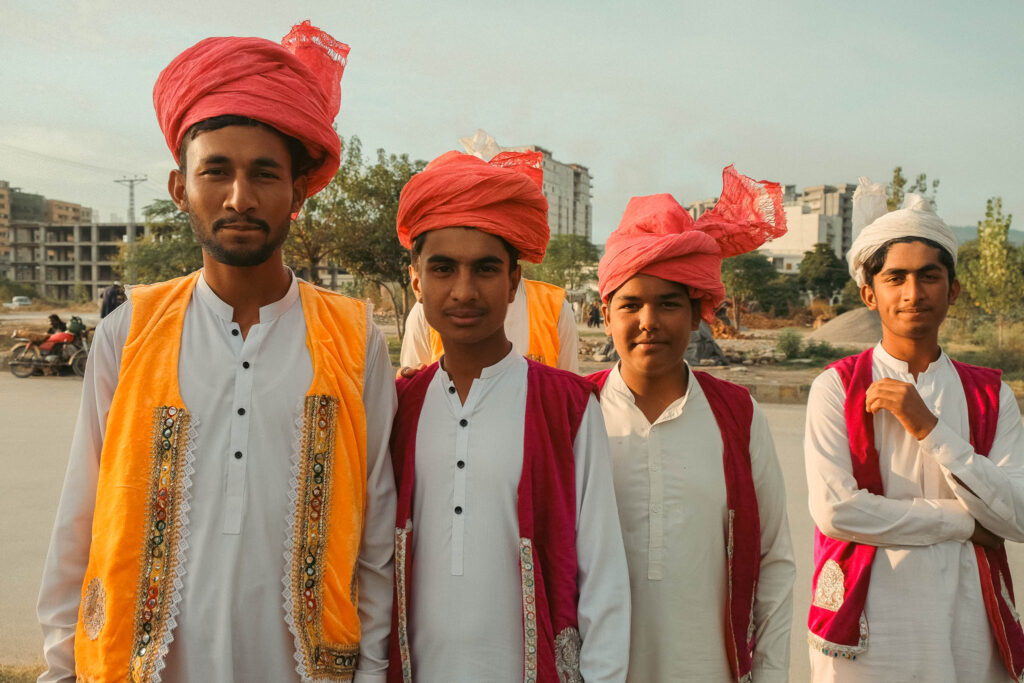
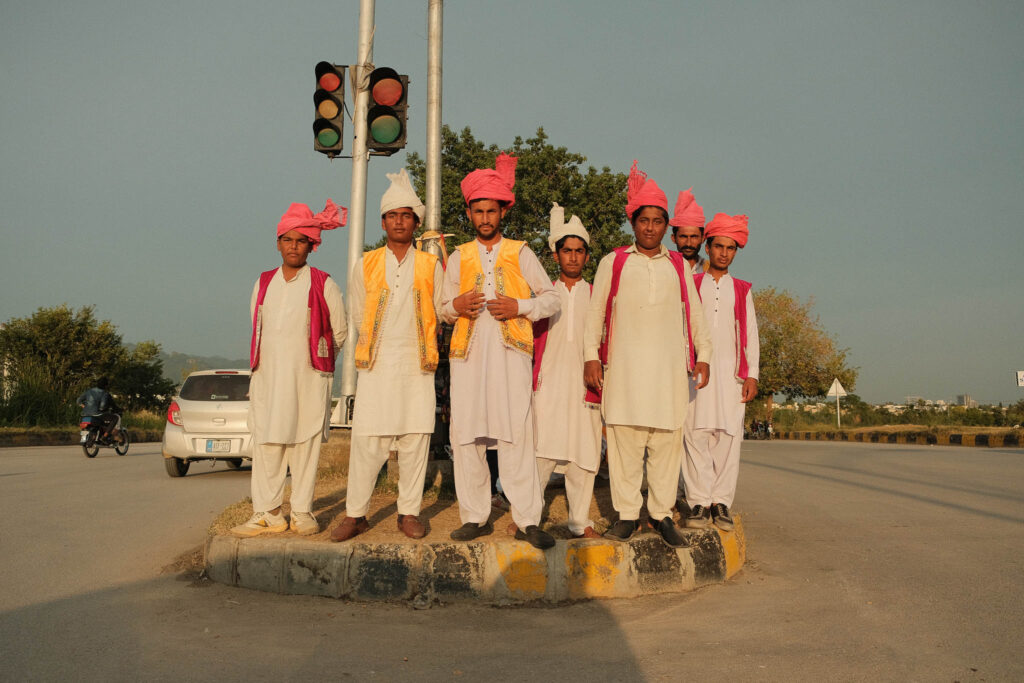
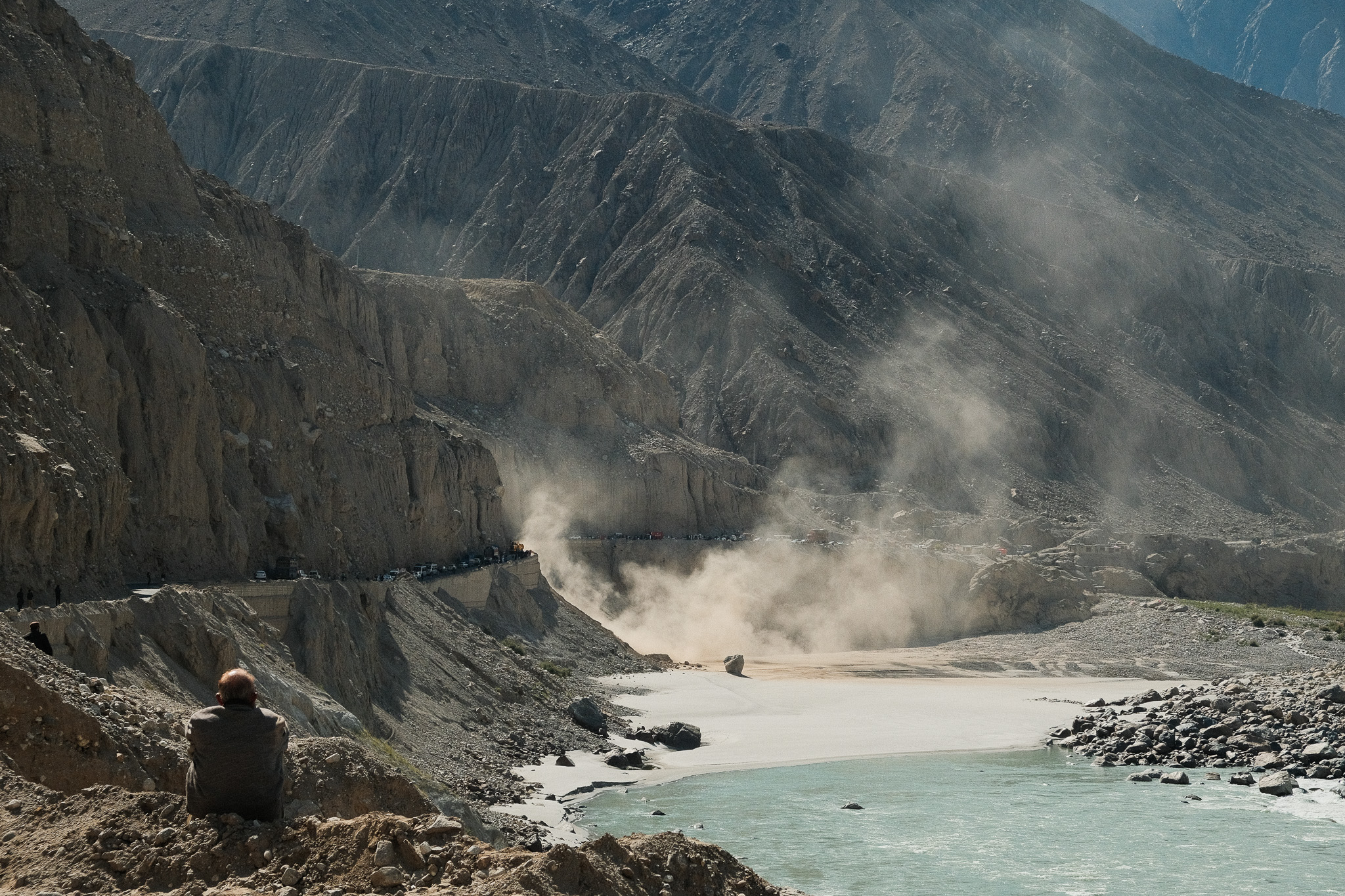
Landslides of Baltistan
When leaving Jaglot in the morning, I was faced with as much asphalt as a lack of it. By now I was used to it, but familiarity with the concept doesn’t breed acceptance. After an hour of plodding my way through, I arrived at the back end of a long queue leading up to clouds of dust. At these moments I’m glad to ride a bike, and I slowly drove past the many cars, richly ornamented trucks and waiting people. I parked my bike completely at the front, next to some army cars and men viewing the spectacle.
I opened my bag and started handing out almonds to the men around me. “It will probably take no more than half an hour”, said one man while accepting my almonds. Another pile of sand and rock was being shoved over the side. I was surprised that they got this giant yellow apparatus here so quickly, until I chatted with another man: “We’ve been waiting here for about 3,5h now, the bulldozer just arrived.” He told me that landslides happens often on this particular road. It’s hard to maintain a road on this kind of rock, It will always crumble and slide, but there is not much of an alternative.
Strangely enough it felt like a relief to spectate an actual fresh landslide. For the past two weeks I had seen traces of past disaster, but I could only imagine the actual moment. Now I knew the real implications, the danger felt more real, but not more frightening. Everything about it felt like just another daily hurdle in Pakistan.
I offered some almonds to the army guys in the pickup next to me, and got an enthusiastic smile back. Not because of the almonds, but for seeing a tall Dutch guy on a small motorbike in Gilgit-Baltistan. The bulldozer reached the other side and the engines were started. I waved the smiling militia goodbye and joined the rest of the bikers through the dust to the other side. Off to the next daily hurdle.
